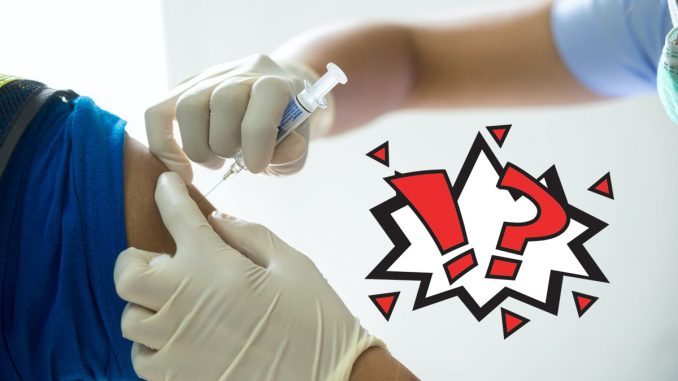
By Gabriela Flores
CUNY announced a random testing program for vaccinated people across the university starting the week of Nov. 15, near the fall semester’s end. Students and faculty who submitted proof of vaccination to CUNY will be randomly selected and required to get tested at a CUNY testing site within seven days after being contacted, leaving many students at Brooklyn College upset with the new policy.
“I think they’re losing the trust of BC students by changing their minds so often. Their policies already in the fall semester changed multiple times,” said student Chaya Fieldman, who finds the new program contradictory to CUNY’s vaccine mandate that initially limited COVID-testing to unvaccinated people, not those who are vaccinated.
If a selected individual test positive for COVID, their access to campus and Cleared4 Access Pass will be blocked, per CUNY’s email announcement on Nov. 17. University administrators, however, did not give details about repercussions for non-compliance. For many students, CUNY’s lack of clarity on the consequences for not testing if selected was troublesome.
“I don’t even know what mandatory means. Are we going to get kicked off the campus if we don’t get the test in time,” questioned student Allan Randall, who explained he does not have time for testing given his busy schedule, but thought the random testing program made sense given the Omicron variant, a highly mutated form of COVID that has spread to dozens of countries so far. “They were not clear on what would happen if you don’t get tested. They were clear on days, but they were not clear upon consequences.”
Richard Pietras, Brooklyn College’s Media Relations Manager, wrote in a statement to The Vanguard that those who do not get tested if selected “will not be able to access campus.” This information, however, is not yet known to many Brooklyn College students. “Those who test positive at Brooklyn College will be contacted by a staff member per the standard protocol. In addition, access to campus will be blocked until they have a negative test,” he continued.
Other students found issues with which vaccinated individuals would be eligible for random testing. After being contacted by a vaccinated student selected for testing despite taking only online courses, David Dweck, Treasurer of the Undergraduate Student Government (USG), noticed that the policy seemingly included those who reported their vaccination status to CUNY and are not accessing its campuses. Dweck consulted with his USG colleagues and BC President Michelle Anderson about the potential issues that can arise for those who may not even have immediate access to one of CUNY’s 20 testing sites.
“Take someone who went to let’s say Europe – would they have to fly back in, take a test and fly back out in order to finish their classes? Or would they be withdrawn? I don’t know. Cause we don’t know what the punishment is for not complying,” Dweck said. “The second thing is that by putting this in place for vaccinated students who are off-campus, we would be discriminating against vaccinated students, thereby causing less students to get vaccinated,” he explained, noting that students who are unvaccinated without medical or religious reasoning may be discouraged from getting the COVID-shot.
As USG awaits word from BC and CUNY administrators after raising their concerns, some students like Dweck also find that vaccinated people are protected enough against COVID-related hospitalizations and deaths, therefore they should not be mandated to get tested. With the high efficacy rates of vaccines approved in America and the slim possibility of false negatives and positives in COVID testing, Randall thinks that, though CUNY’s implementation of a random testing program makes sense in the wake of Omicron, the measure is unfair.
“Science hasn’t figured out how to do 100 percent accurate tests yet. And that’s okay, but when you start implementing towards taking away people’s education, well that’s a different ball game and that’s where I would say maybe it’s not the best idea,” he opined.
As of press time, CUNY’s testing sites have reported a cumulative 181 COVID-positive results out of 79,075 tests university-wide since Aug. 25, according to CUNY’s official website. To date, 19 confirmed total cases of COVID were reported from Brooklyn College’s testing site. Since CUNY has announced its testing program, Brooklyn College’s vaccinated students and staff have been randomly selected for testing.
For more information on the testing program, visit https://www.cuny.edu/coronavirus/covid-19-testing-program-facultyandstaff-faq/#radom.
